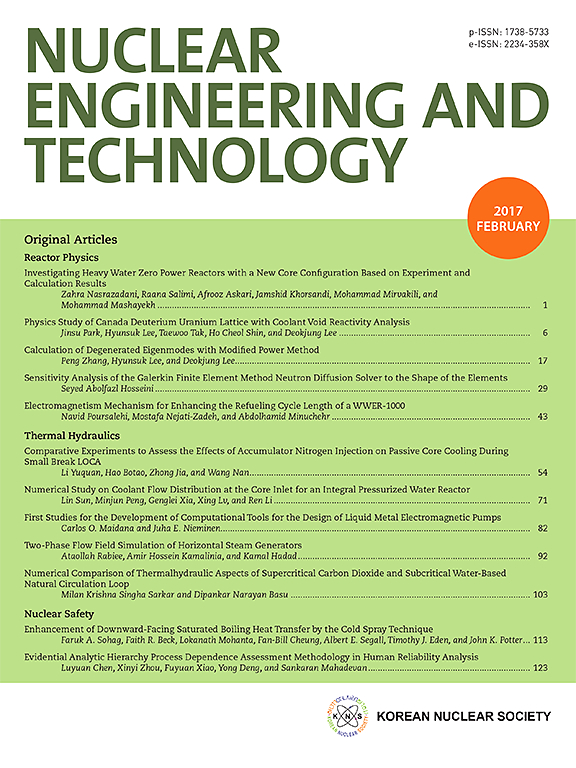Public willingness to pay for interim storage facility for spent nuclear fuel in South Korea
IF 2.6
3区 工程技术
Q1 NUCLEAR SCIENCE & TECHNOLOGY
引用次数: 0
Abstract
As temporary storage capacity for spent nuclear fuel (SNF) nears saturation, securing interim storage facilities (ISFs) has become a critical policy priority in South Korea. This study employs the contingent valuation technique to estimate households' willingness to pay (WTP) for ISF. A dichotomous choice question of whether or not to pay the offered bid was asked, and a spike model was utilized to deal with a WTP of zero. A nationwide survey of 1000 households was conducted in 2024 via one-on-one interviews, with rigorous protocols being employed to ensure methodological validity. The average monthly WTP was obtained as KRW 3244 (USD 2.37) per household, with a 95 % confidence interval of KRW 2922 to 3611 (USD 2.14 to 2.64). Extrapolating this to the national level yields an annual value of KRW 863.52 billion (USD 631.22 million). Socio-economic covariates, including income, metropolitan residency, and awareness of SNF management, exhibited statistically significantly positive effects on the possibility of stating “yes” to a given bid. These findings provide actionable insights for stakeholder-driven decision-making, thereby underscoring the social and economic feasibility of ISFs as a viable solution to the challenges surrounding the country's SNF management.
公众愿意为韩国乏燃料的临时储存设施买单
随着乏燃料(SNF)临时储存能力接近饱和,确保临时储存设施(isf)已成为韩国的关键政策优先事项。本研究采用条件评估技术来评估家庭的支付意愿(WTP)。提出了是否支付出价的二分选择问题,并利用峰值模型来处理WTP为零的情况。2024年,通过一对一访谈对全国1000户家庭进行了调查,并采用了严格的协议来确保方法的有效性。平均每月WTP为每户3244韩元(2.37美元),95%置信区间为2922至3611韩元(2.14至2.64美元)。如果以全国为标准推算,每年的价值为8635.2亿韩元(约6.3122亿美元)。社会经济协变量,包括收入、城市居住和SNF管理意识,在统计上显示出对给定投标表示“是”的可能性有显著的正影响。这些发现为利益相关者驱动的决策提供了可操作的见解,从而强调了isf作为解决该国SNF管理挑战的可行解决方案的社会和经济可行性。
本文章由计算机程序翻译,如有差异,请以英文原文为准。
求助全文
约1分钟内获得全文
求助全文
来源期刊

Nuclear Engineering and Technology
工程技术-核科学技术
CiteScore
4.80
自引率
7.40%
发文量
431
审稿时长
3.5 months
期刊介绍:
Nuclear Engineering and Technology (NET), an international journal of the Korean Nuclear Society (KNS), publishes peer-reviewed papers on original research, ideas and developments in all areas of the field of nuclear science and technology. NET bimonthly publishes original articles, reviews, and technical notes. The journal is listed in the Science Citation Index Expanded (SCIE) of Thomson Reuters.
NET covers all fields for peaceful utilization of nuclear energy and radiation as follows:
1) Reactor Physics
2) Thermal Hydraulics
3) Nuclear Safety
4) Nuclear I&C
5) Nuclear Physics, Fusion, and Laser Technology
6) Nuclear Fuel Cycle and Radioactive Waste Management
7) Nuclear Fuel and Reactor Materials
8) Radiation Application
9) Radiation Protection
10) Nuclear Structural Analysis and Plant Management & Maintenance
11) Nuclear Policy, Economics, and Human Resource Development
 求助内容:
求助内容: 应助结果提醒方式:
应助结果提醒方式:


